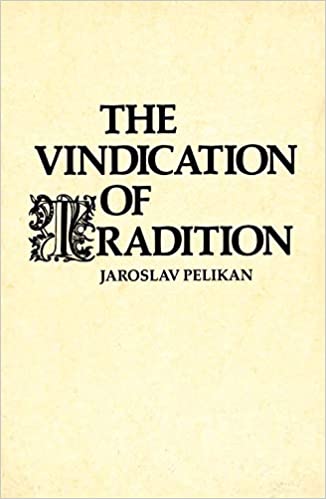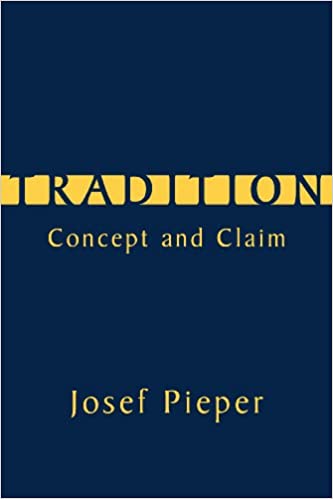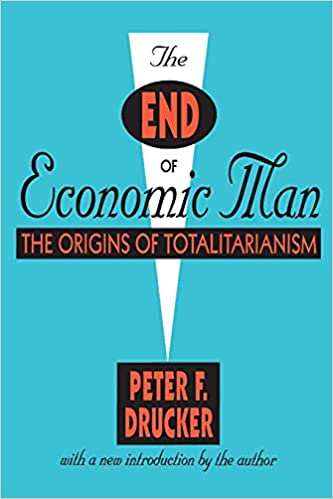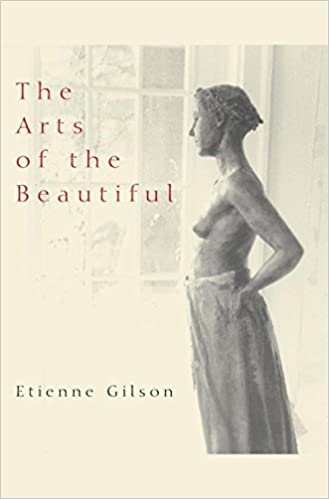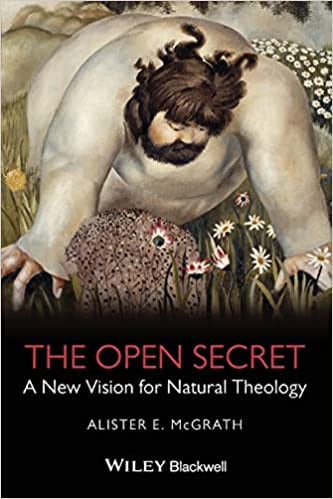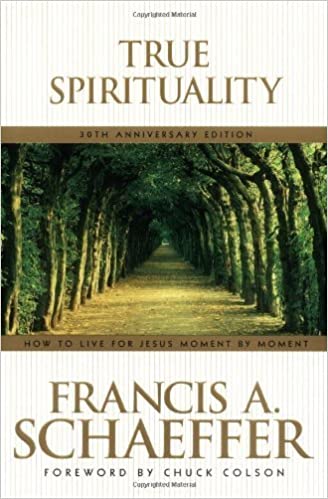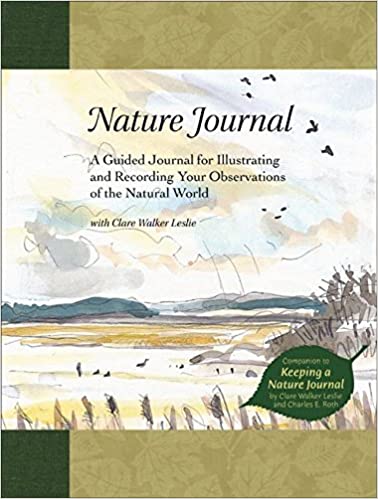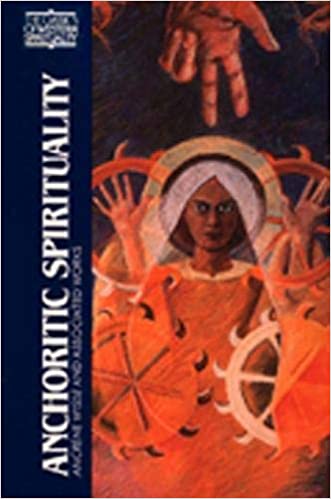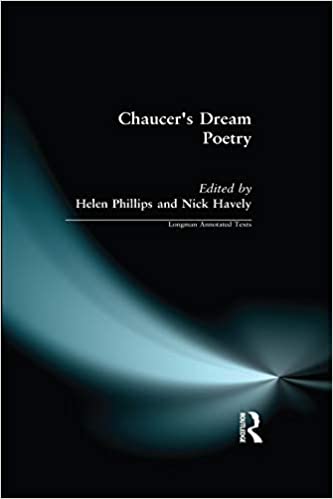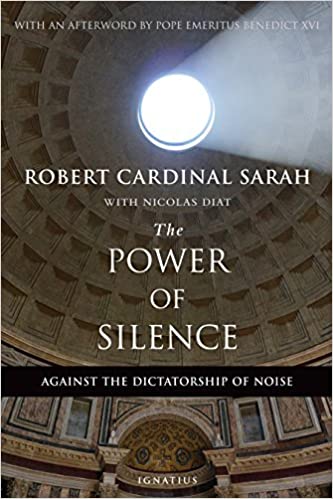The Vindication of Tradition
In this carefully reasoned book, noted historian and theologian Jaroslav Pelikan offers a moving and spirited defense of the importance of tradition.
More info →Tradition
“This is a profound reflection on contemporary understandings and misunderstandings of what tradition is. Pieper argues powerfully that the modern scientific situation, and the zeal for the new, do not and cannot supersede the human need of tradition if we are to orient ourselves in the world and find meaning. Pieper’s quest for the reconciliation of reason/science with tradition/revelation suggests Thomas Aquinas speaking in the language and context of our time.” – Timothy Fuller, Lloyd E. Worner Distinguished Service Professor, Colorado College
“Josef Pieper, in this lucid translation, shows that tradition is not the same as ‘traditionalism’; nor is it the mindless repetition of a past no longer understood. Rather, tradition is the handing down and the reception, generation after generation, of unchanging truths that originate vin a primal revelation. Pieper shows in a brilliant, paradigm-shifting way, how philosophy, theology, science, and the arts interact with tradition, and how a sense of unchanging sacred tradition is necessary for human community.” – Gene Edward Veith, Patrick Henry College
More info →The End of Economic Man
In The End of Economic Man, long recognized as a cornerstone work, Peter F. Drucker explains and interprets fascism and Nazism as fundamental revolutions. In some ways, this book anticipated by more than a decade the existentialism that came to dominate the European political mood in the postwar period. Drucker provides a special addition to the massive literature on existentialism and alienation since World War II. The End of Economic Man is a social and political effort to explain the subjective consequences of the social upheavals caused by warfare.
Drucker concentrates on one specific historical event: the breakdown of the social and political structure of Europe which culminated in the rise of Nazi totalitarianism to mastery over Europe. He explains the tragedy of Europe as the loss of political faith, resulting from the political alienation of the European masses. The End of Economic Man is a book of great social import. It shows not only what might have helped the older generation avert the catastrophe of Nazism, but also how today's generation can prevent another such catastrophe. This work will be of special interest to political scientists, intellectual historians, and sociologists.
The book was singled out for praise on both sides of the Atlantic, and is considered by the author to be his most prescient effort in social theory.
More info →The Arts of the Beautiful
With his usual lucidity, Etienne Gilson addresses the idea that "art is the making of beauty for beauty's own sake." By distinguishing between aesthetics, which promotes art as a form of knowledge, and philosophy, which focuses on the presence of the artist's own talent or genius, Gilson maintains that art belongs to a different category entirely, the category of "making." Gilson's intellectually stimulating meditation on the relation of beauty and art is indispensable to philosophers and artists alike.
More info →The Open Secret
Natural theology, in the view of many, is in crisis. In this long-awaited book, Alister McGrath sets out a new vision for natural theology, re-establishing its legitimacy and utility.
- A timely and innovative resource on natural theology: the exploration of knowledge of God as it is observed through nature
- Written by internationally regarded theologian and author of numerous bestselling books, Alister McGrath
- Develops an intellectually rigorous vision of natural theology as a point of convergence between the Christian faith, the arts and literature, and the natural sciences, opening up important possibilities for dialogue and cross-fertilization
- Treats natural theology as a cultural phenomenon, broader than Christianity itself yet always possessing a distinctively Christian embodiment
- Explores topics including beauty, goodness, truth, and the theological imagination; how investigating nature gives rise to both theological and scientific theories; the idea of a distinctively Christian approach to nature; and how natural theology can function as a bridge between Christianity and other faiths
Sweep: The Story of a Girl and Her Monster
It's been five years since the Sweep disappeared. Orphaned and alone, Nan Sparrow had no other choice but to work for a ruthless chimney sweep named Wilkie Crudd. She spends her days sweeping out chimneys. The job is dangerous and thankless, but with her wits and will, Nan has managed to beat the deadly odds time and time again.
When Nan gets stuck in a chimney fire, she fears the end has come. Instead, she wakes to find herself unharmed in an abandoned attic. And she is not alone. Huddled in the corner is a mysterious creature—a golem—made from soot and ash.
Sweep is the story of a girl and her monster. Together, these two outcasts carve out a new life—saving each other in the process. Lyrically told by one of today's most powerful storytellers, Sweep is a heartrending adventure about the everlasting gifts of friendship and wonder.
More info →True Spirituality
Recognized internationally for his work in Christianity and culture, Francis A. Schaeffer authored more than twenty books, which have been translated into a score of languages and sold millions worldwide. He and his wife, Edith, founded L'Abri Fellowship international study and discipleship centers. Schaeffer passed away in 1984, but his influence and legacy continue worldwide.
More info →A Catholic Woman’s Book of Days
Finding God Every Day
God is present to us in ways too numerous to count. Unfortunately, we are often so busy that we fail to recognize and respond to this active presence. A Catholic Woman’s Book of Days offers daily meditations that clear a spiritual place—a time in our day when we can set our hearts on God. The meditations are brief, pointed, direct, and personal—and will connect you to God’s word and the Catholic faith.While a number of successful devotionals for women have been published for the general Christian market, A Catholic Woman's Book of Days is the first resource in the Catholic market featuring daily devotions and prayers for women. Written by Amy Welborn, the devotional entries are pointed and brief, and help Catholic women connect their everyday concerns with God's Word in the context of their Catholic faith. Each entry is introduced by a Scripture verse and followed by a one-sentence prayer. These devotions and prayers are sure to provide Catholic women with a dose of God's grace each day of the year.
Nature Journal: A Guided Journal for Illustrating and Recording Your Observations of the Natural World
Combining the knowledge of a pocket almanac with the freedom offered by a blank notebook page, this guided nature journal will motivate you to explore your surroundings in depth. Quick sketches of cloud formations, plant structure, and animal anatomy open up your artistic mind, while quotes and writing prompts are scattered throughout for further inspiration. Build a greater awareness of yourself and the world around you as you fill this journal with personal reflections on the raw beauty of nature.
More info →Anchoritic Spirituality
English-speaking Christians owe Paulist Press an enormous debt of gratitude for their continuing efforts to help us gain a deeper appreciation of our spiritual heritage. Spiritual Life In one series, the original writings of the universally acknowledged teachers of the Catholic, Protestant, Eastern Orthodox, Jewish and Islamic traditions have been critically selected, translated and introduced by internationally recognized scholars and spiritual leaders. ANCHORITIC SPIRITUALITY-ANCRENE WISSE AND ASSOCIATED WORKS translated and introduced by Anne Savage and Nicholas Watson preface by Benedicta Ward Therefore this is written in the gospel about the three Marys, Ut venientes ungerunt Iesum-non autem recedentes (Mark 16:1). "These Marys," it says, "these bitterness, were coming to anoint our Lord." They are coming to anoint our Lord-those things we suffer for his love-who stretches himself towards us as one who is anointed, and makes himself smooth and soft to touch. And was he not himself a recluse in Mary's womb? These two things belong to the anchoress: narrowness and bitterness. For the womb is a narrow dwelling, where our Lord was a recluse; and this word "Mary," as I have often said, means "bitterness." Ancrene Wisse (ca. 1225) Sometime in the first quarter of the thirteenth century a number of works were written for anchoresses, women who lived as religious recluses in cells adjoining churches. The most influential is Ancrene Wisse (A Guide for Anchoresses), which discusses in great detail the daily life of the anchoress, both outer-her prayers, her house, her food and clothing-and inner-her attitudes to everything she is and does. Holy Maidenhood, a treatise on virginity, praises the freedom and joy of the unmarried state of the anchoress, providing a series of arguments to support her in her way of life when she may be tempted to leave it. Sawles Warde (The Soul's Keeping) looks at the pains of hell and the joys of heaven as recounted by two messengers, Fear and Love of Life. The passions of three early virgin martyrs, Katherine, Margaret and Juliana provide models of heroic strength and determination in the face of bribery, argument and torture by disappointed would-be lovers, who demand the virgins' renunciation of their new Christian faith. The Wooing of Our Lord is the longest of several short prayers and meditations which court the anchoress, body and soul, on behalf of Christ as lover. Together, the works give us an extraordinarily detailed sense of a powerful, multi-faceted spirituality which is in most respects quite different from that of the later and better-known fourteenth-century English mystics. This is the first time all of these works have appeared together in print.
More info →Chaucer’s Dream Poetry
Dream literature is regarded as one of the most important genres in medieval literature and is widely studied. This text provides a succinct and clear introduction to the five central poems that comprise Chaucer's Dream Poetry, and shows his role as a leading adapter of European Literary tradition into English Literature.
The poems discussed are The Book of the Duchess, The Legend of Good Women, The Legend of Dido, The Parliament of Fowls and The House of Fame. Each have an introduction setting the poem within the context of Dream Poetry and Chaucer's own work. Appendices of proper names, pronunciation and criticism are also given.
This volume is unique is presenting the poems together in an editorial and critical framework. The quality of annotation is unrivalled and will make this text a major addition to the literature suitable for those interested in the genre, literary, or more general history of the period.
More info →The Power of Silence
Now with a new afterword by Pope emeritus Benedict XVI!
In a time when there is more and more noise, and technology and materialism continue to exert their hold on us, Cardinal Robert Sarah presents a bold book about the strength of silence. The world generates so much noise that seeking moments of silence only becomes more necessary. For Cardinal Sarah, modern man, in repressing the divine, finds himself in a deep dilemma, an oppressive and anguishing trial. The Cardinal recalls that life is a silent relationship between what is most intimate in man and God. Silence is indispensable for hearing the music of God: prayer arises from silence and returns to silence with ever greater depth.
In this long and profound conversation with Nicolas Diat, done within the hallowed walls of silence in the famous Carthusian monastery of La Grande Chartreux in France, the Cardinal proposes the question: can those who do not know silence ever attain truth, beauty, love? The response is undeniable: all that is great and creative is formed by silence. God is silence.
After the great international success of God or Nothing, translated into fourteen languages, Cardinal Sarah seeks to restore to silence its place of honor and importance. "Although speech characterizes man, silence is what defines him, because speech acquires sense only in terms of this silence." This is the beautiful and significant message of The Power of Silence.
In this book, Cardinal Sarah has only one aim, which is summed up in this thought from his book: "Silence is difficult but it makes a human being able to allow himself to be led by God. Silence is born of silence. Through God the silent one we can gain access to silence. And a human being is unceasingly surprised by the light that bursts forth then. Silence is more important than any other human work. For it expresses God. The true revolution comes from silence; it leads us toward God and others so as to place ourselves humbly and generously at their service."
More info →
